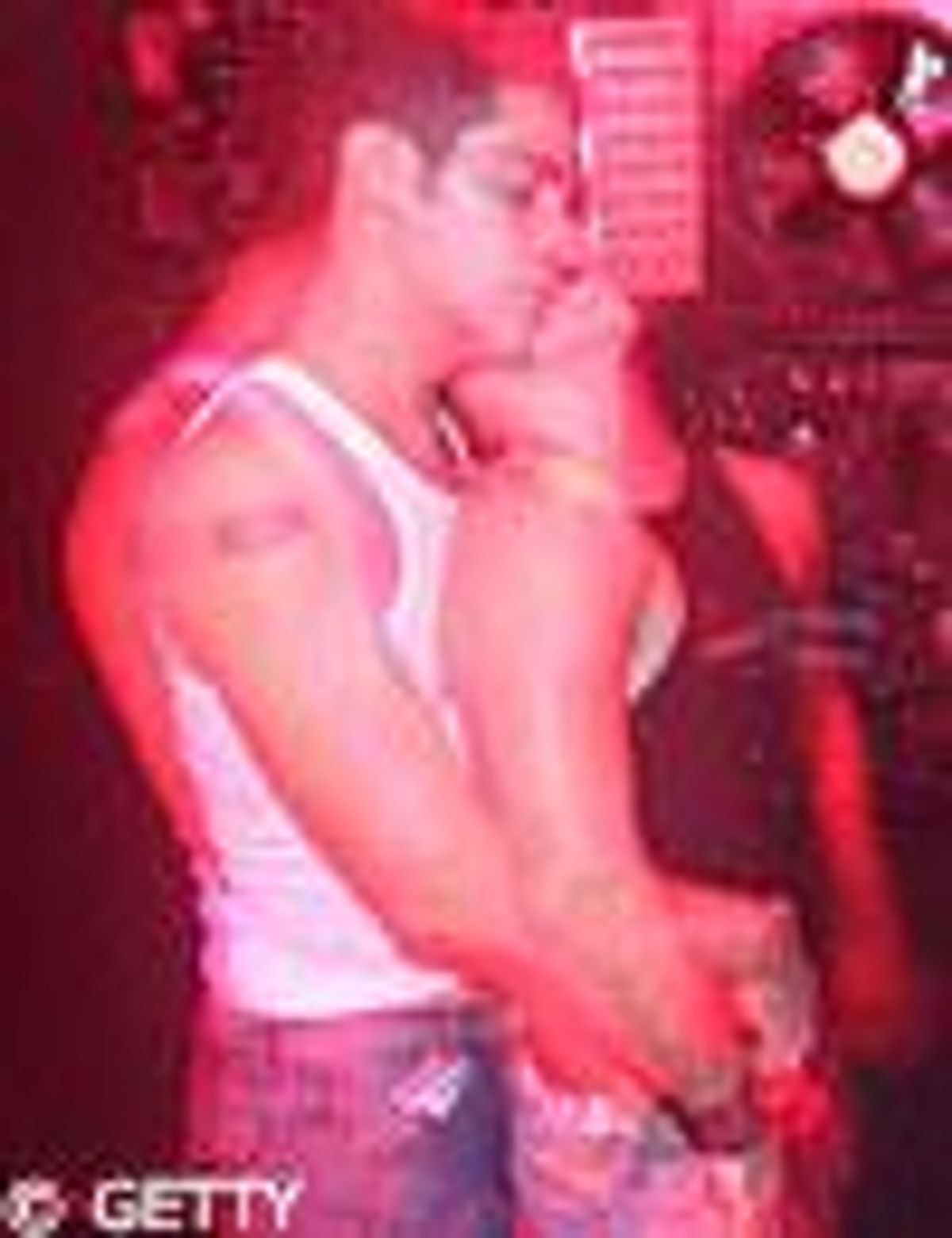
The Bubble portrays the Mediterranean city as a mecca for cultural, political, and religious tolerance. Time Out Tel Aviv editor Itai Valdman separates fact from fantasy.
August 24 2007 12:00 AM EST
November 17 2015 5:28 AM EST
By continuing to use our site, you agree to our Private Policy and Terms of Use.

The Bubble portrays the Mediterranean city as a mecca for cultural, political, and religious tolerance. Time Out Tel Aviv editor Itai Valdman separates fact from fantasy.
In the first two months of my army service, I got a hard-on every time I walked into the common showers. Imagine an 18-year-old gay boy from a small town in northern Israel suddenly surrounded by 50 naked young guys.
I was, of course, still deep in the closet (I would come out two years later in 1999 during my officer course). The only things I knew about homosexual sex I learned from movies like My Own Private Idaho and Beautiful Thing.
The reason I'm telling you this? Because army service is key in Israeli gay life. It's no accident that the creators of The Bubble chose to open their film with the main character on reserve duty at a checkpoint where he meets a young Palestinian man who will become his lover.
If there was such a thing as an "Israeli gay scene," both the army and Tel Aviv would be part of it. Locals will say Tel Aviv is gay as Christmas, though in reality the scene is quite small. There are only two gay bars and one lesbian bar in the city, and all of them are far from cool. The lesbian bar attracts mostly young, loud girls from outside Tel Aviv; the gay bars are populated by the Israeli version of Chelsea boys--guys who work out all day and think black tank tops are the height of fashion and house music is still hot shit.
On the other hand, Tel Aviv is a very gay-friendly city. You can spot a gay crowd almost anywhere--except the gay bars--and many of those places are the engine of the city's cultural life. For instance, Rif Raf, a small bar on Gruzenberg Street, attracts a mixed gay and straight crowd, and on Monday nights Lima Lima hosts a gay hip-hop night. But the most colorful gay parties in town can be found at the Barzilay club, where Thursdays' "Pag" parties are packed with a young, stylish crowd, described on MySpace as "nice Jewish boys with a vengeance."
"The gay nightlife in Tel Aviv has become a lot more diverse in recent years," says Pag manager Roy Raz, who for his money considers the men in Tel Aviv the best-looking in the world. "For a such a small country and community, things are looking a hell of a lot better," he says. "A few years ago, if you wanted to go out to a gay party, you would have to put up with the whole gym-house music thing. Today, there's a much bigger variety of music as well as a more diverse crowd. There are a lot of new options, and that's a good thing--as long as they don't steal the crowd from my parties."
It's safe to say the most interesting gay activities in Tel Aviv happen outside the places that define themselves as gay. Truth is, being gay in Israel is no longer a big deal. Ivri Lider, the country's biggest pop singer, is gay. Prime Minister Ehud Olmert's daughter is a very politically active lesbian. Gays play major roles in journalism, literature, and the arts. In Israel the gay agenda is becoming a matter of routine.
That's a far cry from Palestinian society; in the territories gay people are subject to arrest and persecution. Still, "there is a Palestinian gay scene," says writer and activist Liad Kantorowicz, who grew up in the United States and Israel. "It's a small community where everyone knows everyone. Up until a few years ago, Tel Aviv was an asylum to many gay Palestinians who ran away from the territories." Kantorowicz recounts a story of one Palestinian in Tel Aviv whom the Israeli secret service threatened to out to his family if he didn't become an agent for them. "That is why the first thing that is said about someone who's gay in the territories is that he must be an agent," Kantorowicz says. "The majority of gay Palestinians live straight lives."
As for an Israeli-Palestinian love affair a la The Bubble, Kantorowicz doesn't believe it's likely. "A lot of Jews have a fetish to be with Arabs and vice versa," she says. "So it happens that two meet in a party and go home together, but soon after that the differences become clear. It's obvious that having such a relationship is impossible."
In Tel Aviv love across ethnicities isn't the only taboo. Even the most bohemian of Israeli 20-somethings never talk politics. They'll spend most of their life chatting about culture and art in the city's coffee shops, but they're fed up with the conflict. Why, they wonder most uncinematically, would they risk their their lives just for a piece of land?
Want more breaking equality news & trending entertainment stories?
Check out our NEW 24/7 streaming service: the Advocate Channel!
Download the Advocate Channel App for your mobile phone and your favorite streaming device!
